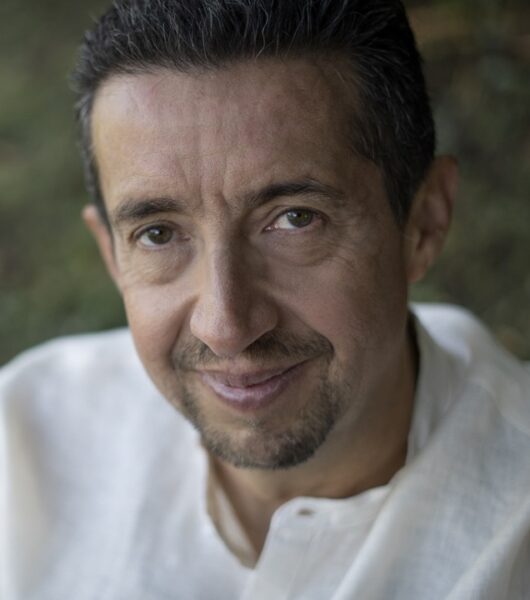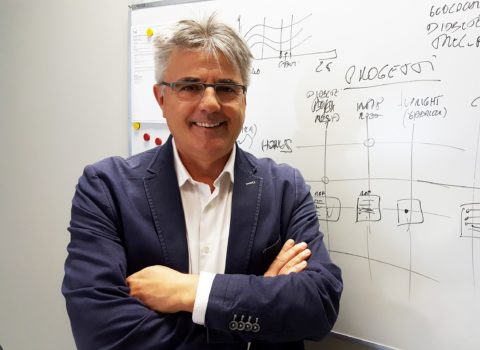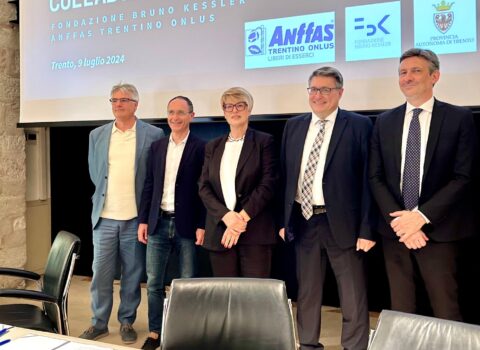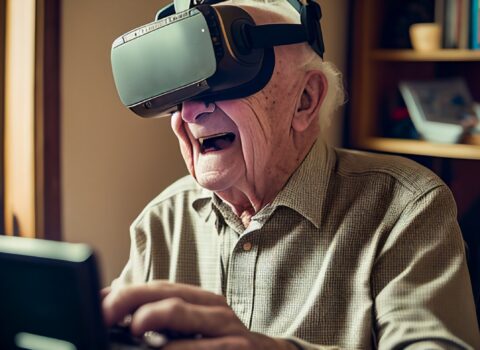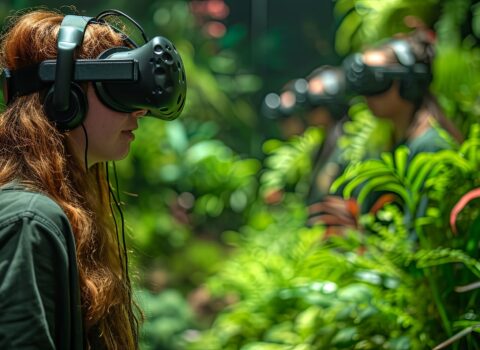
VR Health Champions: Extended Reality for healthcare
FBK is contributing to healthcare innovation with extended reality for diagnostics, treatment, surgery and training
From training for healthcare professionals to advanced surgical support and digital therapies for neurodegenerative conditions, extended reality (XR) is revolutionizing the world of healthcare. To transform this technology into a practical and accessible tool, Fondazione Bruno Kessler is among the key players in the European VR Health Champions project, an initiative funded by Interregional Innovation Investment (I3) under the European Regional Development Fund (ERDF).
These days, FBK hosted the project’s first General Assembly, a key meeting that brought together the entire consortium to take stock of the first six months and define next strategies. With an ongoing commitment to user-centered solution design and XR software development for healthcare, FBK is collaborating with an international consortium of academic and industrial partners, supporting five innovative SMEs to bring their technologies to market and maximize their impact in clinical settings. They include MEEVA, a Trentino-based company founded in 2022 as the main result of the European XR4A project co-funded by EIT Digital, and whose mission is to create virtual reality solutions for improving the quality of life of neurodiverse young people.
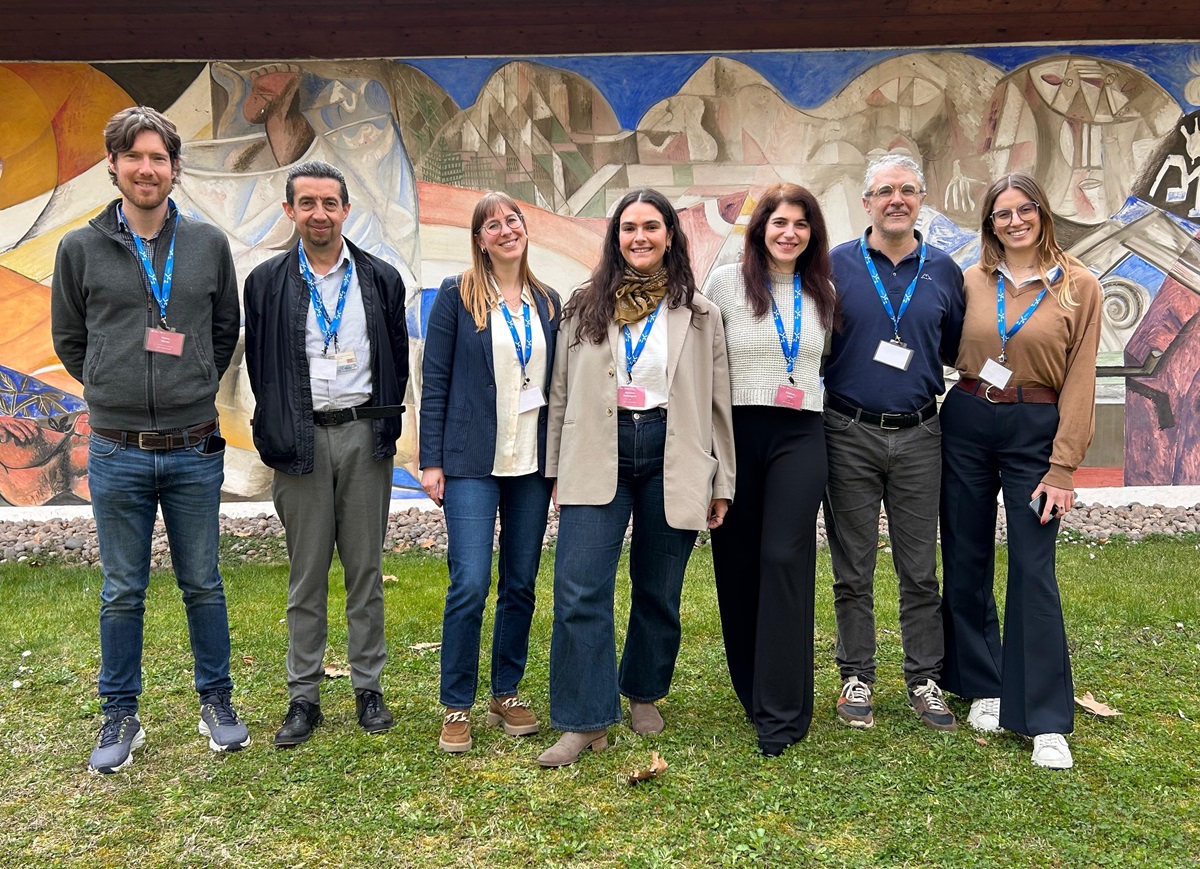
Marco Dianti (FBK), Oscar Mayora (FBK), Giulia Mezzanotte (FBK), Mariana Domingues (IPN-coordinatore), Cristiana Costa (IPN), Elio Salvadori (FBK), Anna Genovese (FBK)
As part of the VR Health Champions project, FBK acts as a service provider, mainly contributing to the development of XR solutions for healthcare, with a special focus on user experience design, usability, and advanced software development. The activity adapts to the specific needs of the SMEs involved, supporting them both in the design phase, through requirements analysis and usability testing, and in the implementation phase, following the entire development process of immersive solutions so that they meet the real needs of healthcare professionals and patients.
The XR applications developed within the project find use in several key areas. A first area is medical training and simulation, where virtual reality is used for training and skill testing of healthcare professionals, offering immersive scenarios for handling critical situations. Another area of application is support to surgery, where XR is used to improve the efficiency and accuracy of procedures by providing surgeons with advanced visual assistance tools. Finally, a booming area is digital therapies that leverage virtual reality for enhancing cognitive and motor skills in patients with Parkinson’s, Alzheimer’s or dementia and in people with neurodevelopmental disorders.
“The VR Health Champions project is a strategic initiative for FBK’s DHRes unit,” said Oscar Mayora head of the Digital Health Research Unit. ”With our expertise in user-centered design and advanced virtual reality (VR) development, we translate technology into concrete solutions for diagnostics, therapy, surgery and medical education. Collaborating with these five SMEs within an international consortium is essential to amplify the impact of VR in healthcare and consolidate FBK’s role in this transformation.”
March 26 and 27, 2025, Fondazione Bruno Kessler hosted the project’s General Assembly, an event that brought together all partners involved to assess progress and plan future activities. The VR Health Champions project, launched in October 2024, relies on the collaboration of a consortium of academic and industrial partners – EIT Health InnoStars, working jointly to provide five European companies – MEEVA, Virtuleap, Metaskills, Lightspace Technologies and MedApp – with advanced technology tools and innovative services to facilitate their access to the Extended Reality healthcare market.
The project consortium consists of 18 partners from 8 European countries, which in turn are pushing the creation of 9 regional ecosystems on XR for health. Key contributors besides Fondazione Bruno Kessler include Klaster Life Science Krakow, Medical University of Lodz, Lodz University of Technology, University of Latvia, and hospitals such as Unidade Local de Saúde de Coimbra. Industrial partners such as Medtronic Portugal and Medtronic Ibérica SA, Syreon Research Institute and RTE Lab, along with the European XR4Europe initiative, are actively supporting the project. The Pedro Nunes Institute is the project’s coordinator with EIT Health InnoStars as co-coordiantor.
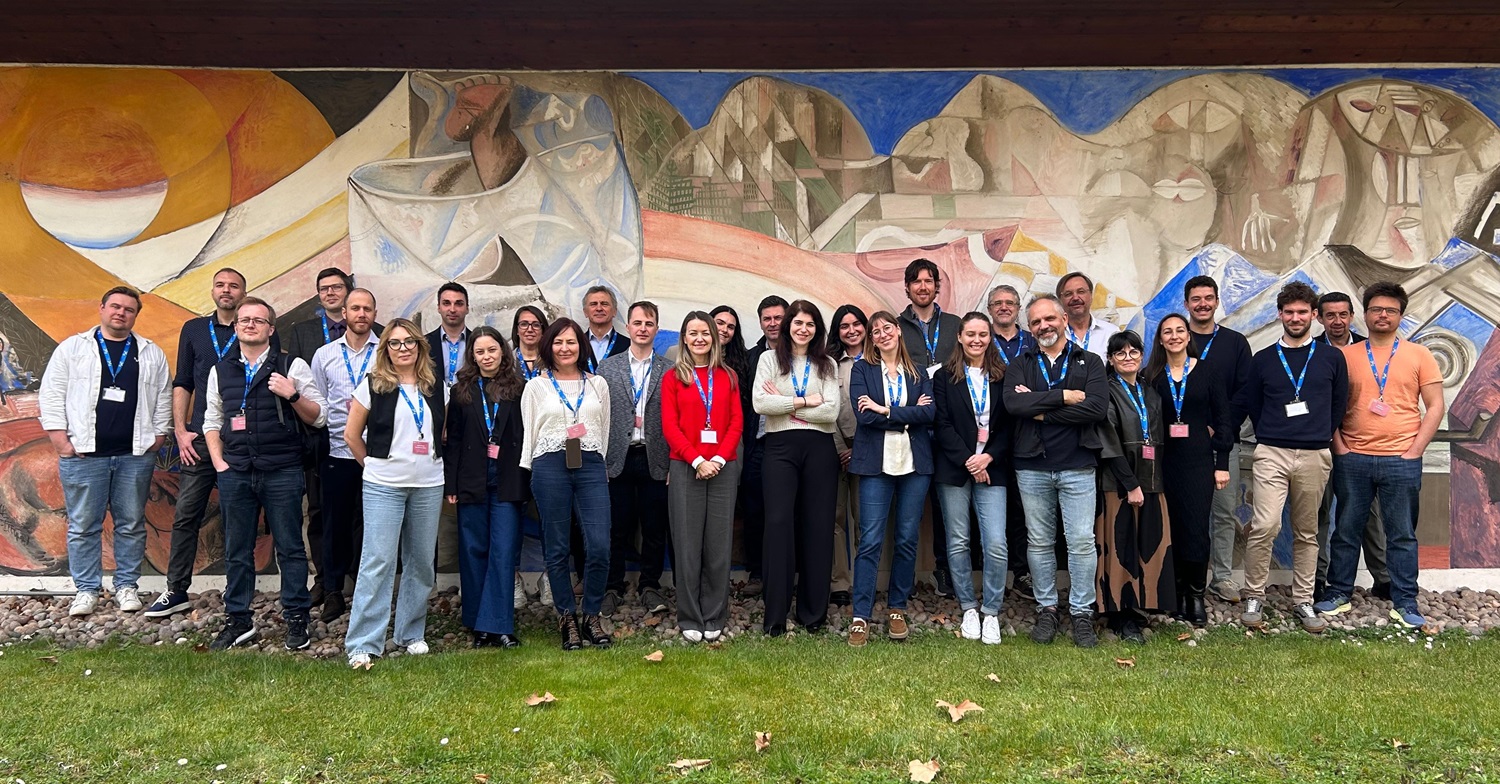
Consortium of the VR Health Champions project


